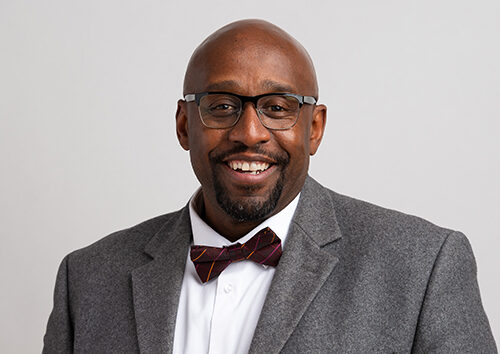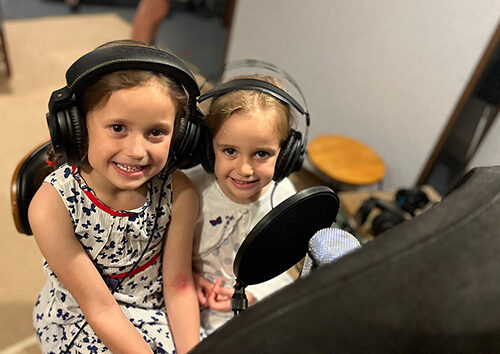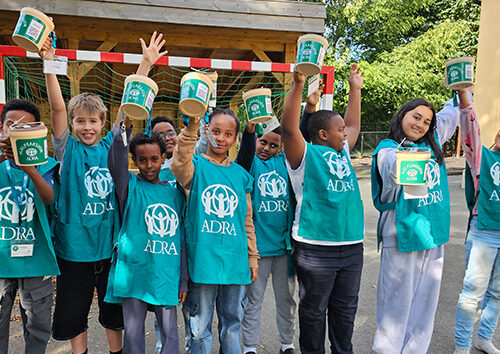11 June 2016 | St Albans [Victor Hulbert] Nobody chooses to be a refugee. War, persecution, oppressive regimes – there are many reasons why there are currently 60 million displaced persons or refugees in the world. Each one has their story. Each one wants to survive. Each one wants a better life. Each one lives with hope.
Hope! That is something Francine Karekezi needed. A Tutsi, she ran for her life during the 1994 Rwandan genocide. Today she lives in Austria. Her tale is horrific.
 Francine grew up as a Seventh-day Adventist. She was a committed Christian, but that did not stop her community from being attacked. The boys and men were all shot. The killers said the women and girls should be ‘hugged’ with machetes as they did not have enough bullets.
Francine grew up as a Seventh-day Adventist. She was a committed Christian, but that did not stop her community from being attacked. The boys and men were all shot. The killers said the women and girls should be ‘hugged’ with machetes as they did not have enough bullets.
‘When they moved towards us I was the first one,’ she recalled while publicly telling her story for the first time. ‘My neck had to be cut off but I had the reflex to block it. That’s why I have scars on my left arm.’ Her mother jumped on the man who was trying to kill her, screaming, ‘You are not going to kill my daughter in front of me!’
Francine ran, heading towards a nearby Red Cross hospital that was already a sanctuary for her sister. It was barely 50 metres but became a desperate race. She was caught on the barbed wire fence, and even as she ran the militia shot at her. Her mother, severely injured, staggered along behind. Someone threw a grenade but thankfully it didn’t go off.
Amazingly they made it over the high wall and into the safety of the compound. And that is where they remained for the next three months, protected by Red Cross workers who kept them hidden and lied to the militiamen about them.
Sadly, the end of the genocide was not the end of her ordeal. When she left the hospital compound all she found was horror. ‘Everything that made me what I am – my family, neighbours, friends, everything that was Tutsi around me – everybody was just killed. Everybody was gone.’
That horror led her to another question: ‘Why me? Why did I survive?’ She has no easy answer and for many such survivors the very fact of being alive can lead to feelings of guilt. However, for Francine survival gave her the strong feeling that she had to do something very positive with her life, to do something for God. The first step was to find healing for herself and forgiveness for those who committed such horrible atrocities.
‘Healing, with time, is just there,’ she says. ‘Forgiveness, that must be our decision.’ That forgiveness is important for her. ‘Forgiveness helps those who forgive. It was a tragic thing that happened, not only to those who were killed, but those who killed. I look at it through biblical lenses. This person is in more trouble than those he killed. Those people who killed during the war went through awful things that they wouldn’t have gone through had they not killed. They have to carry that guilt.’ She concludes: ‘It never crossed my mind that I should hate them.’

The time on the radio taught Bahati something about healing. He especially remembers a call he took from one of the killers. After several long conversations he arranged a meeting between the killer and the surviving family of those he killed. ‘It was a very moving and tearful experience,’ Bahati confessed. The family were more than willing to forgive. They just wanted to hear the words, to receive the explanation. ‘Bringing people together like this is what Christ can do,’
Bahati adds. ‘It gave me the real motivation and purpose for airing that difficult radio programme for so many years.’
While today’s refugees are looking for hope and a future in Europe they are passing through the very countries that almost cost Dejan Stojkovic his life during the Balkan wars of the 1990s. Dejan is a Serb, but grew up in a home where he was taught not to take sides, but to take people at their face value. That can be a challenge when your country is at war with your neighbours. He remembers taking a train to Novi Sad in northern Serbia. One of the passengers started cursing the Croatians. Dejan says, ‘I thought this was a good moment to share my belief and conviction, taking into consideration that my best friends were from Croatia and Bosnia. I told him, “People are people to me until they show that they are not.” ‘

‘It makes me look at today’s refugee crisis through very different eyes,’ he says. ‘I know what it is to be a refugee, even to be looked down on and scorned because of what my country is going through.’ Since his experience in Serbia he is also scornful of the propaganda – on both sides of the fence.
‘I started telling you a story about Serbs because as these wars took place you probably took sides as we usually do,’ he said. ‘Depending on which news you watched you formed your opinion and it was easy to see that we were portrayed in the media as the nation which deserved all that happened to us.’ Dejan takes another view. ‘The fact is that war is never good. All sides committed terrible things to each other but we ended up with the world marking us as the lowest of all.’
That has been the case until the recent European refugee crisis. Until recently, he says, ‘It was almost impossible to find anyone to say a good word about Serbia. But this crisis has shown the other face of the Serbian people. One picture that touched my heart is the image of a Serbian police officer and a smiling Syrian boy. I can summarise that picture in one word: compassion.’
Francine, Dejan and Deana no longer live in the countries of their birth. However, all three have learnt the meaning of hope, and now share the compassion and love of God with whomever they come in contact with – whether that contact is a former enemy, or simply the next wave of refugees, or a hurting person who crosses their path. [tedNEWS]
This article was first published in a special edition of FOCUS Magazine, 2016-1. looking at peace, hope and pacifism. Used by permission, The Stanborough Press, Grantham, England.
See Also: Interpreting Love. The personal experience of an interpreter at the Petra, Olympus refugee camp in Northern Greece.
Yazidi Refugees between a rock and a hard place. Frank Brenda shares what ADRA is doing to try and help Yazidi refugees in Northern Greece.
‘I feel I make a difference.‘ A 12 minute video highligting how volunteers and workers from ADRA, Adventist Help and local Greek church members are supporting refugees in Greece.
tedNEWS Staff: Victor Hulbert, director; Esti Pujic, editor
119 St Peter’s Street, St Albans, Herts, AL1 3EY, England
E-mail: [email protected]
Website: www.ted.adventist.org
tedNEWS is an information bulletin issued by the communication department of the Seventh-day Adventist Church in the Trans-European Division.
You are free to re-print any portion of the bulletin without need for special permission. However, we kindly request that you identify tedNEWS whenever you publish these materials.



